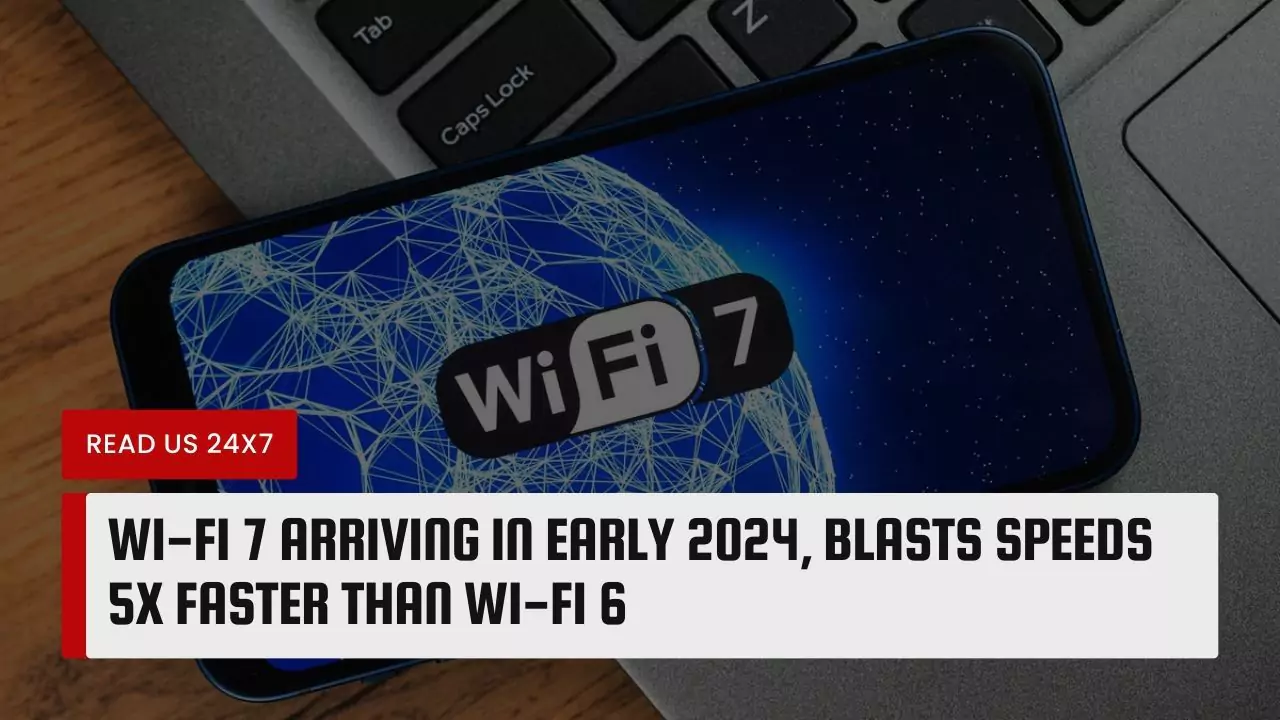Wi-Fi 7 is the next generation of wireless technology that will offer unprecedented speeds and performance for internet users. Based on the IEEE 802.11be standard, Wi-Fi 7 promises to deliver peak data rates of up to 46Gbps, almost five times faster than the current Wi-Fi 6 standard.
What Is Wi-Fi 7?
Wi-Fi 7 is the latest iteration of the Wi-Fi technology that enables wireless communication between devices and networks. Wi-Fi 7 is based on the IEEE 802.11be standard, which is still under development and expected to be finalized in early 2024. Wi-Fi 7 will use the same frequency bands as Wi-Fi 6, namely 2.4GHz, 5GHz, and 6GHz, but will employ several advanced features to enhance the speed, efficiency, and reliability of wireless connections. Some of these features include:
- Multi-User, Multiple Input, Multiple Output (MU-MIMO): This feature allows multiple devices to communicate with multiple antennas on a router simultaneously, increasing the capacity and throughput of the network.
- Orthogonal Frequency Division Multiple Access (OFDMA): This feature divides the wireless channel into smaller sub-channels, each of which can be assigned to different devices or applications, improving the spectrum efficiency and reducing interference.
- Multi-Link Operation (MLO): This feature enables a device to connect to multiple access points or routers at the same time, using different frequency bands or spatial streams, enhancing the reliability and performance of the connection.
- Enhanced 1024-QAM Modulation: This feature increases the number of bits that can be transmitted per symbol, boosting the data rate and bandwidth of the wireless signal.
These features, along with other improvements, will enable Wi-Fi 7 to achieve peak data rates of up to 46Gbps, which is almost five times faster than the maximum data rate of Wi-Fi 6, which is 9.6Gbps.
Benefits of Wi-Fi 7
Wi-Fi 7 will offer several benefits for internet users, especially in scenarios where high-speed, low-latency, and high-density wireless connections are required. Some of the benefits of Wi-Fi 7 are:
- Higher Speeds: Wi-Fi 7 will enable faster data transfers and downloads, as well as smoother streaming and gaming experiences, thanks to its higher data rates and bandwidth. For example, a 4K video that takes about 2 minutes to download using Wi-Fi 6, will take only about 25 seconds using Wi-Fi 7.
- Improved Performance for Connected Devices: Wi-Fi 7 will support more devices on a network, as well as more applications and services, without compromising the quality of the connection. This will benefit the growing number of smart devices and IoT applications that rely on Wi-Fi for connectivity, such as smart homes, smart cities, smart health, and smart industry solutions.
- Enhanced Security and Privacy: Wi-Fi 7 will incorporate the latest security and privacy standards, such as WPA3 and Enhanced Open, to protect the wireless network and the data transmitted over it from unauthorized access and attacks.
Latest Updates and Release Date
Wi-Fi 7 is still in the development stage, and the final approval of the IEEE 802.11be standard is expected to happen in early 2024. However, some early adopter devices and products that support Wi-Fi 7 have already been announced and released, such as:
- Gigabyte’s Wi-Fi 7 PCIe Adapter: Gigabyte, a leading manufacturer of computer hardware and components, has launched the world’s first Wi-Fi 7 PCIe adapter, which can be installed on a desktop PC to enable Wi-Fi 7 connectivity. The adapter supports data rates of up to 40Gbps and features four external antennas for optimal signal reception and transmission.
- Samsung’s Wi-Fi 7 Chipset: Samsung, a global leader in electronics and technology, has developed a Wi-Fi 7 chipset that can be integrated into smartphones, tablets, laptops, and other devices to enable Wi-Fi 7 functionality. The chipset supports data rates of up to 21Gbps and features MLO and OFDMA technologies for enhanced performance and efficiency.
The official launch and widespread adoption of Wi-Fi 7 is expected to happen in 2024, after the final approval of the IEEE 802.11be standard and the certification of the Wi-Fi Alliance, the organization that oversees the development and promotion of Wi-Fi technology.
What Does This Mean for Consumers and the Future of Wi-Fi?
Wi-Fi 7 is poised to revolutionize wireless technology and the internet experience for consumers and businesses alike. With its unprecedented speeds and performance, Wi-Fi 7 will enable new possibilities and opportunities for innovation and development in various fields and sectors, such as entertainment, education, health, industry, and more. However, to fully utilize the potential of Wi-Fi 7, consumers will need to upgrade their devices and routers to support Wi-Fi 7, as well as ensure that their internet service providers and infrastructure are compatible with Wi-Fi 7. Moreover, Wi-Fi 7 will not be the end of the Wi-Fi evolution, as the next generation of Wi-Fi, Wi-Fi 8, is already in the works, promising even faster and smarter wireless connectivity for the future.


